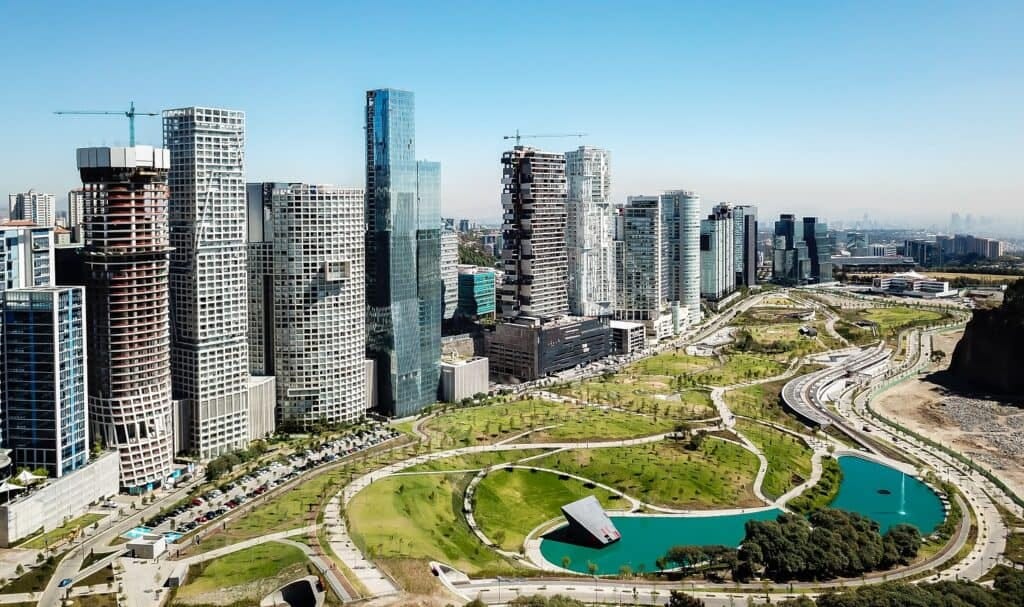How Much It Cost To Live In Mexico City (2024)
Updated breakdown of personal expenses. *It may not reflect everyone
Some people move to Latin America to live more affordably, while others relocate to take advantage of the improved quality of life.
As the peso has strengthened, costs have changed over the years.
Some individuals manage to live extremely frugally and sacrifice many benefits, but regardless, here is my 2024 expense breakdown.
Rent + Utilities: $1900
Yes, this would be considered incredibly expensive for the majority of Mexico City. When I first moved to the city years ago, my rent and expenses were closer to $1350. Between Mexico’s inflation, increased currency value, and the fact that I choose to live in a prime area, my costs have gone up.
I currently rent a 2000 sqft, 3-bedroom, 2-bath apartment, which boasts what I consider one of the best views of the city. The building also features multiple security guards and an additional parking spot. Realistically, I may actually downsize to a smaller unit simply because I don’t actually need 3 bedrooms. Scaling down to 2 bedrooms might reduce costs by 25-30%. When signing a year lease, you can still find 1-2 bedroom units for $1200-$1500, depending on the furnishings. Compared to what you might pay on Airbnb, this is still considered a very good price when you factor in all the taxes that Airbnb often tacks on.
Utilities per Month:
- Gas: $8
- Water: $25
- Electric: $22
These costs have increased by about 12%.
Cell phone:
I pay $30 a month for a nearly unlimited plan. I could spend less than that, but I admit to being a power user. This cost has increased by about 18%.
Internet/TV:
I pay $20 a month for a high-speed cable/internet/phone package. I have answered the phone and used the cable maybe three times in a year and a half, but the package was cheaper. This is a standard 60Mbps connection.
This cost has increased by about 28%.
Food: $400
My grocery bill has not significantly increased. I often cook meals for myself, buying a lot of beef and chicken. I would say that groceries are not significantly cheaper in Mexico if you want to eat very well. Of course I could eat cheaper items, but I prefer not too. While many things are cheaper, if you choose to eat well and shop at grocery stores (additionally, 90% of the groceries I buy are delivered), you can't expect your costs to be significantly lower. If you do want to cut your grocery bill, you can shop at local markets and cheaper grocery stores. But that also requires a time investment. I don’t want to spend my free time wandering markets for a deal, but I understand that some people do.
This cost has increased by about 18%.
How much does the average household spend on groceries per month? The average American household spends an average of $475.25 a month on groceries, according to the most recently available dataset from the U.S. Bureau of Labor Statistics from 2022. That's a total of $5,703 spent on groceries in a year. Quote USA Today
Entertainment + Health: $1000.
This increase is due to the general rise in the cost of living in the city. I still have food delivered and enjoy dining out. I primarily use Uber for transportation, take trips, and factor in the cost of dates. Additionally, I have increased expenses such as gym and spa memberships, chiropractic visits, medical expenses, and house cleaning services. Gym memberships can add an additional $25-$30 per month. Chiropractic visits may cost close to $50 each. I typically pay my house cleaner to occasionally cook, which costs about $5 per hour.
Additional fluctuating costs include random things I order online. I might go a month without buying anything, and then all of a sudden drop $200-$300 ordering stuff from the States or on Amazon.
Dates and Nightlife:
I go on many dates, with costs ranging from $10 for hot chocolate or tea. ( I do a lot of non alcohol dates at niche places) $15 for a casual taco and margarita outing to $50-$100 for a more upscale dinner with cocktails. While I don't regularly go out to party, when I do, I seize the opportunity to indulge and incur higher costs.
On average I’d say I spend about $30 dollars on a cocktail or wine date.
I typically go on about 3 dates a week +- the dates with regulars which can often be free.
Transportation:
Uber rides average about $5-7 each way. peak times might double that price, but trip times also average about 15-35 minutes so paying $15 bucks for a 35 minute uber during peak time is east
Eating out:
This might average out to $25 per meal. There are still plenty of inexpensive options available. For instance, I recently took some family members to a local spot and paid about $15 for close to 17 tacos, which was enough to feed four people and continue exploring the city. Conversely, a meal at an upscale restaurant might cost about $60 per person. This cost has increased by about 50%. This isn't surprising considering that luxury items and events in general have seen price hikes worldwide. However, these costs are still significantly lower than in America.
Education: $0*
Previously, I invested about $250 per month in Spanish lessons and other education. However, I am no longer taking Spanish classes as I've reached a level where further instruction wouldn't benefit me greatly enough, and I can instead focus on self-improvement in my daily life.
Total: $3300 - $3500
Depending on the month and whether I have family and friends visiting, this cost my fluctuate 10-30%
US Expenses:
I still manage multiple properties in the states. But my cost are very low. Storage, insurance, a small fund for incidentals.
The properties don’t generate much, this isn’t really a business for me, but more of properties I already owned and now rent because I live in Mexico.
The profit generated outways the maybe 250 a month in expense I pay to the point that I don’t factor them in anymore.
There are also many ways to reduce taxes… such as
How I Saved $24,000 In Federal Income Taxes
** I waited until the refund money hit my account before posting this. I moved to Mexico in the summer a couple of years ago. Which meant I didn’t qualify for the Foreign Earned Income Exclusion Act (FEIE) in the first year. I had to wait until I lived here for a full calendar year to file.








Nice breakdown! — will be nomading in CDMX for the next month and a half (Just came from BSAS, and PDC) — is there still a telegram chat going for subscribers?